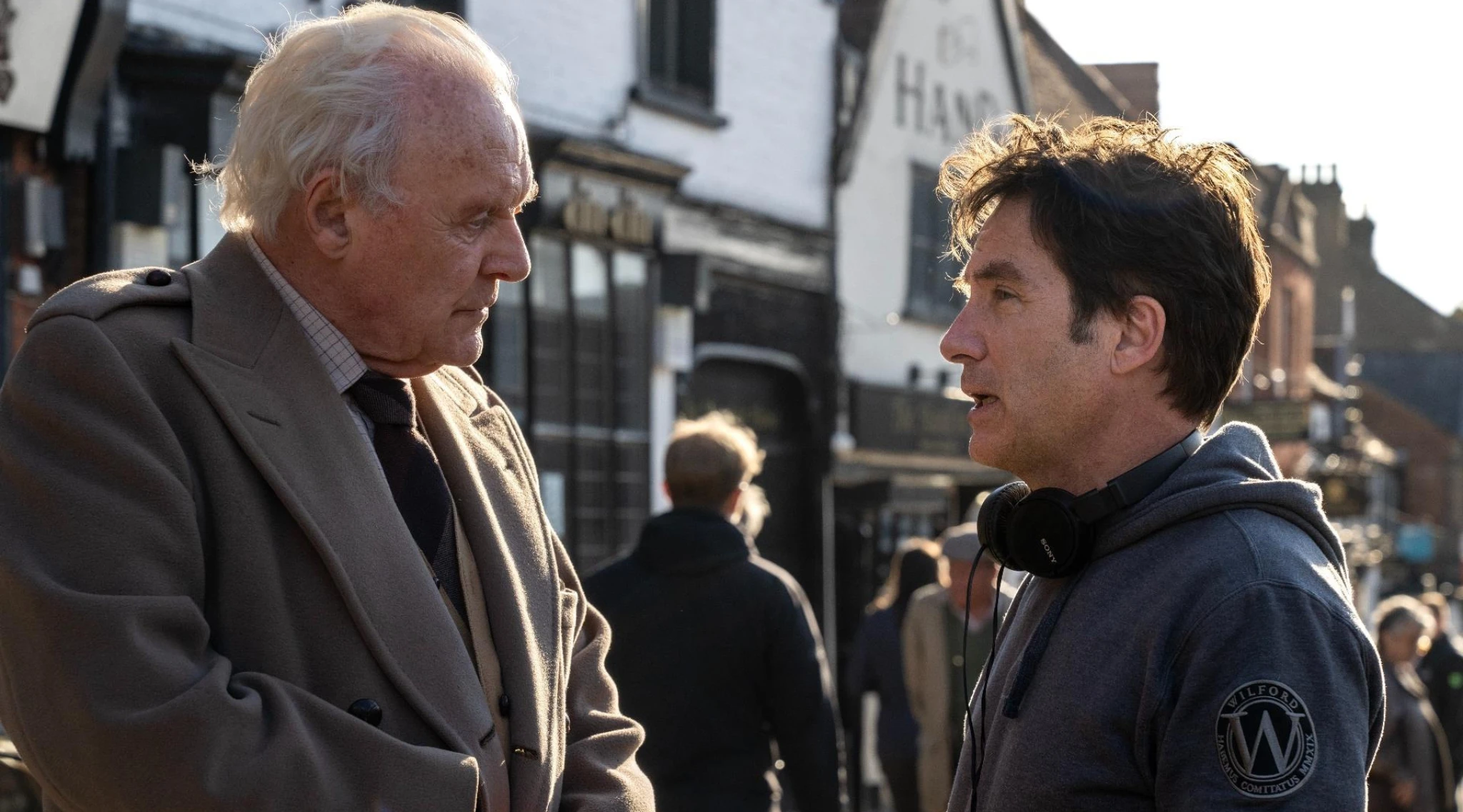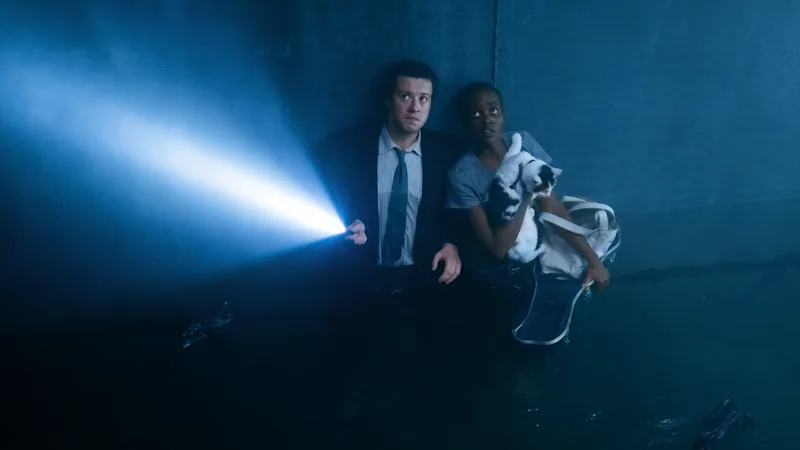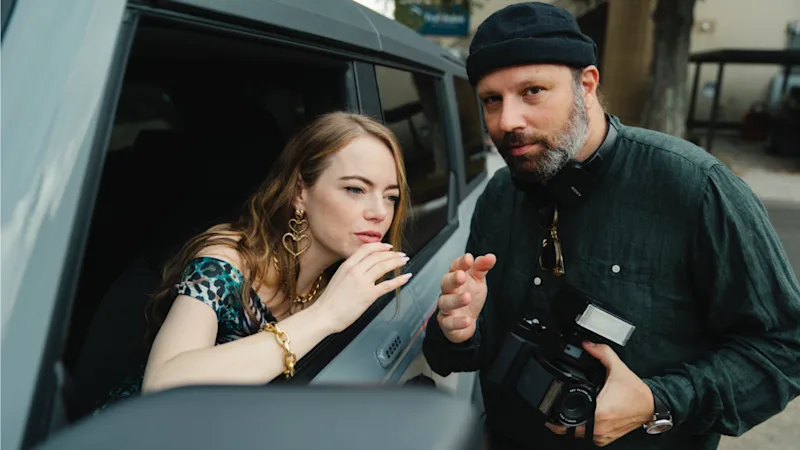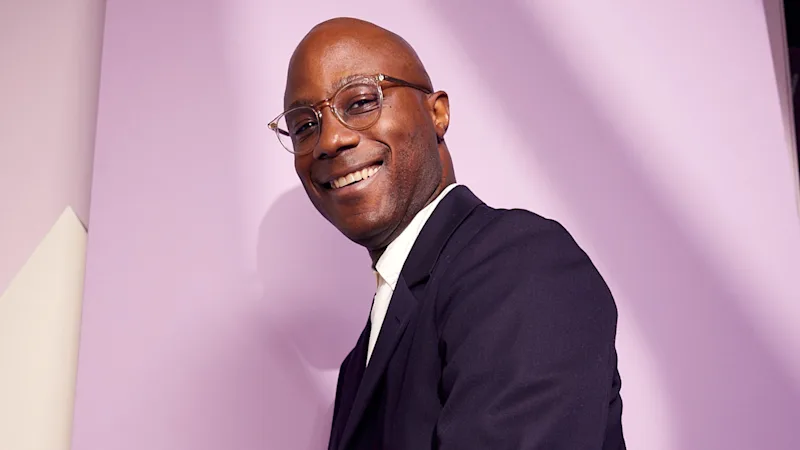James Hawes has dedicated much of his directing career to bringing powerful true stories to the screen. It's only fitting then that the prolific television director's feature debut film is One Life, a moving biopic about a genuine hero — British humanitarian Nicholas Winton — brought to the big screen starring one of cinema's greatest actors.
Based on the book If It's Not Impossible…: The Life of Sir Nicholas Winton by Barbara Winton, One Life tells the incredible true story of a London stockbroker who helped 669 Jewish children escape from Nazi-occupied Czechoslovakia at the outbreak of World War II. Johnny Flynn plays Winton in the 1930s, while two-time Oscar-winning actor Sir Anthony Hopkins portrays him 50 years later, as he reflects back on his life and his regret over the children that he wasn't able to rescue.
Though Winton has been known as the "British Schindler," the film is not a Holocaust drama in the traditional sense. "It happens before the camps, before the meeting that decided the Final Solution," says Hawes. "Obviously, we touch on the same ground of Nazis and the antisemitism and the horror that was about to come, so you are aware of what is out there, you learn lessons, you pay homage, but I think the way to approach it is to play to the strengths of what your character's story demands."
Winton's heroic efforts only became widely known when he was asked to appear on the BBC program That's Life in 1988 and was surprised with an audience made up of the children — by then adults — that he had saved all those years ago. Winton became a national hero and was knighted in 2003. He died in 2015 at the age of 106. Meanwhile, his That's Life clip continues to go viral to this day.
The filmmaker knew that One Life needed to live up to the magic of the moment on That's Life, and Hawes managed to pack the same "emotional punch" by tracking down the children of the children saved by Winton and casting them as the extras seated with Hopkins. "What you see is a real, deeply-felt emotion of these people who know they wouldn't be in that studio right now if not for the man represented in front of them," Hawes tells A.frame.
A.frame: I need to start with a burning question: Did Anthony Hopkins do all of his own swimming and diving stunts?
[Laughs.] Anthony did most of his own swimming stunts. He was in that pool, and proudly so!

What was it like getting to work so closely with such a legendary actor? He is 86 years old but still operating at the top of his game, as evidenced by his work here.
On one level, it's an absolute thrill to be working with one of the all-time greats, and you have to pinch yourself. On another level, you have to approach it like you're dealing with any other actor, which means you understand what their process is. You've already had a lot of conversations with them, and you need to know how they want to prepare for a shot, and you get ready for the camera to roll so that that actor isn't compromised by any of the technical crap that has to go on to bring that to the big screen. But you can't help but feel in awe of somebody who takes such pleasure and joy in the process and, at his age, can still deliver such intensity and emotional energy.
What was it about directing One Life that spoke to you? I believe Anthony Hopkins was already onboard, which is a pretty great selling point.
It's a true story that really packs a punch, and I'm a huge addict for those moments in the cinemas when it says, "Based on a true story." From that moment on, every scene, every character somehow just matters more; it lands with more emotional impact. There's that YouTube clip that shows the television scene that originally brought Nicky Winton's story to the public, and that gives a director a fantastic destination for the narrative — an emotional ending that's very satisfying. That's not always the case when you meet a film project. So, to know I have a great endpoint that was going to let audiences leave the theater feeling uplifted by what they just experienced, that's a pretty good draw.
The entire movie is building to this moment and so many people have seen how the real moment plays out via that clip. So, what was your process in putting that together for One Life? Did you want to recreate it exactly?
Well, first of all, that scene has to deliver in the film at least as much as the YouTube clip. The second thing, to me, is there was no point in just recreating the YouTube clip shot for shot, because that's 1980s TV pedestal cameras moving around the studio. It is great but it's not now. What was far more interesting for me was to experience it with the character, and that's what the film gave me the opportunity to do. So, the camera travels into the studio on Nicky's shoulder, you discover this strange world with him when he first meets one of the children that he saved, who is now a grown woman, and the camera tucks in over their shoulder. It's not viewed from the presenter's stage, it's not viewed from the camera, it’s an intimate moment between those two people. I was trying to add to it, to build the experience, and then make sure we had at least as much emotional punch.
Like That's Life had the now-grown children that Winton helped save in the crowd, the scene in the movie features the real-life children of those people. Anthony Hopkins said that he didn't have to do much acting that day. What were the emotions like on set?
He's being gracious but modest as ever. That energy was extraordinary. We had this idea that having the children of the children saved form part of the audience would be true to the essence of the film. These people came in from Canada, Scotland, Italy, Israel, as well as around the U.K., which speaks to the effect that Nicky had on this population. And there's a moment, just before the big reveal of who the audience is, where the television presenter says, "If anybody here owes their life to Nicholas Winton, would you please stand,” and you don't see a crowd of slightly-wooden extras. What you see is a real, deeply-felt emotion of these people who know they wouldn't be in that studio right now if not for the man represented in front of them.
The next time you watch, look at the row of faces just behind Tony. There is so much work going on to control emotions, to work out what they're feeling. Of course, in the studio, we were in bits. I could barely see the monitor through my own tears. It gives me goosebumps now.

How did your work with Johnny Flynn and Anthony Hopkins compare? How much did they base their portrayals of Winton off one another, or was it best to give them the freedom to build their own versions of the man at different points in his life?
I've worked with Johnny before, so I know that he's an incredibly generous and accessible actor to work with. He was in awe of coming on to play the younger Sir Anthony, and he embraced that. All of Anthony's stuff was filmed first, so we didn't work with them together. But Johnny talked with Anthony and looked for little gestures that they were both developing together. So, with some details, there were crossovers, and that gave me picture points for which I could go from the '80s to the '30s and back again. Of course, you want them to do research so that the performance comes from inside-out, rather than stuck on ideas that the director's thrown at them of ways they can perform it to you.
You also reunited The Two Popes! Anthony Hopkins and Jonathan Pryce were both Oscar-nominated for that film, and they came back together for a single scene in One Life. You can also just feel like electricity and energy between them. What was it like having a front row seat for that reunion?
Having Tony and Jonathan on the same day was exhausting, because they're both Welsh and they spent most of the day arguing about which one of them was more Welsh than the other: The one from the north, or the one from the south? [Laughs.] When I told Tony that we'd cast Jonathan, he said, "Oh god! He's been given a knighthood since I saw him last, he's going to be unbearable." There's a level of banter and level of fun, and then you just have two absolute greats that give you the lightness and the comedy of that particular scene. It was a very special day.
You've been working as a director for two decades, but how does it feel to have now made your feature debut?
It's completely wonderful and utterly thrilling. The combat of every day on set is no different to the way it is on TV. The biggest problem I face is that now I'm really willing to do more. The hunger for the next project, the next story, the next brilliant actor is insatiable.
By Derek Lawrence
RELATED CONTENT:
'One Life' Director James Hawes' Top 5
'Rustin' Writer Julian Breece on Spotlighting the Gay Civil Rights Icon (Exclusive)
Inside Bradley Cooper and Screenwriter Josh Singer's Collaboration on 'Maestro' (Exclusive)







